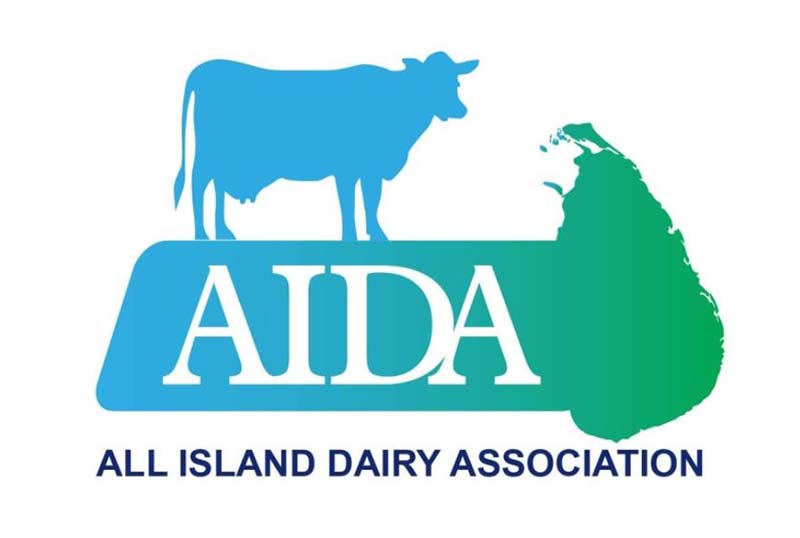
All Island Dairy Association Raises Alarming Concerns About the Detrimental Impact of VAT Proposal on Sri Lanka’s Dairy Sector
The All Island Dairy Association (AIDA) has voiced grave concerns regarding the Sri Lankan government’s proposed increase in the Value Added Tax (VAT) from 15% to 18%, set to take effect on January 1st, 2024. This move, intended to broaden the tax base, could have severe repercussions for the dairy sector, a vital contributor to the nation’s GDP and a cornerstone of rural livelihoods.
The dairy sector, which witnessed substantial growth with a peak of over 400 million litres of milk production from 2017 up to 2021, now faces a precarious situation. The proposed VAT hike threatens the profitability of the sector and contradicts the government’s own objective to boost dairy production by 53%. Fresh milk production and fresh milk-based products were previously VAT exempt, providing essential support to around 300,000 small-scale farmers and over 2 million dependents directly or indirectly involved in the sector.
The potential repercussions of the VAT increase are multi-faceted. The economic stability of the dairy sector, crucial for the well-being of farmers and the broader rural economy, is at risk. The sector experienced a 1.33% decline in 2022, indicating its sensitivity to economic fluctuations. The proposed VAT increase could exacerbate this vulnerability, leading to a more pronounced decline in production and real income losses for farmers.
Furthermore, the cost of producing a litre of milk has surged by 174% between 2013 and 2022, primarily due to rising input costs such as feed ingredients. Retail prices have followed suit, increasing by 168% in the same period. The additional burden of increased VAT could further strain the affordability of dairy products, potentially leading to a decline in consumption. This has dire consequences for public health, particularly among vulnerable groups, intensifying the nation’s existing malnutrition problems.
The economic implications extend beyond the dairy sector itself. Anticipated price increases in dairy products, integral to the Sri Lankan diet, could result in a significant decline in consumption, estimated to be around 30-40%. Such a downturn in dairy consumption has ripple effects across ancillary sectors, including packaging, transportation, and retail, potentially leading to job losses and decreased income for workers in these related fields.
Members of the All Island Dairy Association are key stakeholders in Sri Lanka’s dairy sector, contributing to the collection of nearly 60% of the nation’s daily milk produced by farmers and processing 200 to 250 million litres of fresh milk annually. The proposed VAT increase, however, threatens the viability of local dairy products, forcing consumers towards less expensive imported alternatives.
AIDA emphasizes the current challenges faced by producers and processors, highlighting the struggles in marketing local products. Processors producing UHT milk in one-litre packs using local fresh milk have seen a significant drop in sales, leading to discounts at a loss to move products. Local fresh milk is already more expensive than imported milk powders, and the proposed VAT increase only worsens the situation.
Compounded by rising prices in concentrate feed and grazing lands for dairy cattle, the proposed VAT scheme could cripple the local dairy industry, already in turmoil. AIDA warns that consumers may shift away from locally produced fresh milk-based products, opting for cheaper imported powdered milk powders.
Effectively addressing the challenges arising from the proposed VAT increase from 15% to 18% in Sri Lanka’s dairy sector requires a consolidated and targeted approach. The All Island Dairy Association puts forth key policy recommendations to mitigate the impact. Firstly, AIDA suggests implementing the VAT increase gradually, accompanied by support measures. This approach would allow the dairy sector to adjust while ensuring relief for essential inputs.
To enhance productivity and reduce local production costs, AIDA proposes facilitating the import of feed ingredients. Additionally, the association recommends providing the private sector with access to underutilized land resources on government schemes for large-scale intensive dairy farming, fodder cultivation, and silage production through reasonably agreed long-term leases. AIDA also encourages the cultivation of fodder/maize on paddy fields during the Yala season, and between the Maha and Yala seasons to meet the requirements of small and medium-scale dairy farmers.

Another crucial recommendation involves strengthening cooperatives and promoting the production of value-added dairy products to enhance profitability within the sector. AIDA emphasizes the importance of proactive monitoring and consumer awareness initiatives, assigning the Department of Animal Production and Health (DAPH) the responsibility of tracking the VAT’s impact, suggesting policy adjustments, and conducting consumer awareness campaigns. This comprehensive set of recommendations aims to safeguard the interests of the dairy sector and ensure sustainable growth in the face of the proposed VAT increase.
The All Island Dairy Association humbly urges the government to reconsider the proposed VAT increase, recognizing its far-reaching and detrimental consequences on the dairy sector, rural livelihoods, and the overall health and well-being of the Sri Lankan population.


